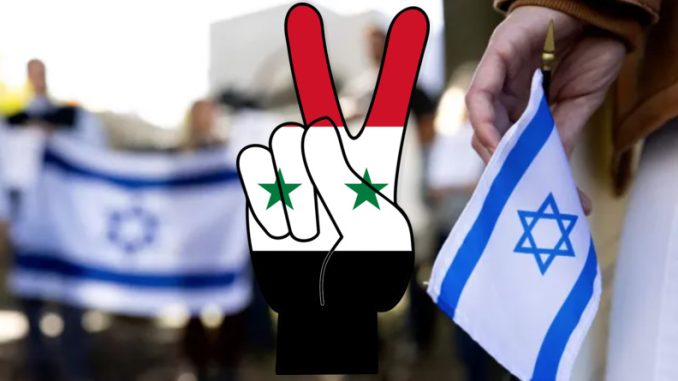
By Obinna Ejianya (9News Nigeria – Melbourne, Australia)
Overview of the Israel-Hamas conflict
- The significance of the Abraham Accord during the Israel-Hamas war
- Key players in the Abraham Accord
- Challenges and obstacles faced by the Abraham Accord
- Impact of the Abraham Accord on regional dynamics
- International reactions to the Abraham Accord amidst the Israel-Hamas war
- Evaluating the effectiveness of the Abraham Accord in promoting peace
- Future prospects of the Abraham Accord in the midst of the Israel-Hamas war
- The Enduring Legacy of the Abraham Accord
Keywords: Middle East Peace of Abraham Accord, Israel-Hamas War, regional conflict, diplomatic efforts, humanitarian crisis
The ongoing conflict between Israel and Hamas has raised questions about the sustainability of the Middle East Peace of Abraham Accord. As rockets continue to rain down on both sides, diplomatic efforts to address the crisis and alleviate the humanitarian crisis are intensifying. This article aims to explore the current state of the Israel-Hamas war, the impact on the Middle East Peace of Abraham Accord, and the challenges of achieving lasting peace in the region.
The Israel-Hamas conflict has deep historical and political roots. It is a result of decades of unresolved issues, including the Israeli occupation of Palestinian territories, the blockade of Gaza, and the lack of a viable solution for Palestinian statehood. The recent escalation began with the October 7 terrorist attacks launched by Hamas, which resulted in significant casualties on both sides.
In response to the attacks, Israel has vowed to wipe out Hamas, the Islamist group that controls the Gaza Strip. Israeli airstrikes have targeted Hamas infrastructure, resulting in a significant loss of life and damage to the civilian population. The Israeli government has also announced that at least 199 people are being held hostage in Gaza.
The conflict has led to a severe humanitarian crisis, particularly in Gaza, which is being described as being “strangled” by Israel’s siege and aerial bombardment. The blockade has limited the availability of essential supplies such as fuel, electricity, and water. As a result, half a million residents have left northern Gaza for the south, seeking safety from the airstrikes. The displacement of civilians and the destruction of infrastructure have exacerbated the suffering of the Palestinian people.
The Middle East Peace of Abraham Accord: A Fragile Agreement
The Promise of the Peace Agreement: The Middle East Peace of Abraham Accord, signed in September 2020, was hailed as a historic breakthrough in the region. The agreement normalized diplomatic relations between Israel and several Arab countries, including the United Arab Emirates, Bahrain, Sudan, and Morocco. It offered the potential for increased cooperation and economic development in the region.
The Israel-Hamas conflict has tested the resilience of the Middle East Peace of Abraham Accord. The recent violence has highlighted the unresolved issues between Israel and the Palestinians, which were not addressed in the agreement. The lack of progress on the Israeli-Palestinian conflict has raised concerns about the long-term sustainability of the peace accord.
Amidst the conflict, diplomatic efforts to address the crisis and de-escalate tensions are intensifying. US Secretary of State Antony Blinken has been engaged in talks with Israeli and regional leaders, emphasizing the importance of a ceasefire and humanitarian assistance. Efforts to open a humanitarian corridor to Gaza via Egypt are also underway.
Regional actors, such as Egypt, have played a crucial role in mediating the conflict and advocating for a peaceful resolution. Egypt has offered to transport injured civilians in need of medical care to hospitals in Sinai and has called for restraint from both sides. However, the complexity of the conflict and the entrenched positions of the parties involved make a swift resolution challenging.
To achieve lasting peace in the region, it is crucial to address the root causes of the Israel-Hamas conflict. This includes addressing the Israeli occupation of Palestinian territories, lifting the blockade on Gaza, and finding a just and viable solution for Palestinian statehood. International pressure and diplomatic efforts must focus on creating conditions for meaningful negotiations and a comprehensive peace agreement.
Immediate attention must be given to providing humanitarian assistance to the affected population and rebuilding destroyed infrastructure. The international community has a responsibility to ensure the well-being of civilians affected by the conflict and to support efforts to improve living conditions in Gaza and other affected areas.
A sustainable peace process requires the inclusion of all relevant stakeholders, including the Palestinian Authority, to ensure a comprehensive agreement that addresses the aspirations and rights of both Israelis and Palestinians. The international community must support efforts to revive meaningful negotiations and engage in dialogue that leads to a just and lasting resolution.
International support and accountability are crucial in the pursuit of peace. The United Nations and other international organizations must play an active role in facilitating negotiations, monitoring compliance with agreements, and ensuring the protection of human rights. International pressure and sanctions should be employed to discourage actions that undermine the peace process and to hold accountable those responsible for human rights violations.
The Israel-Hamas conflict has presented a significant challenge to the Middle East Peace of Abraham Accord. The ongoing violence and humanitarian crisis highlight the urgent need for a comprehensive and sustainable peace process. Addressing the root causes of the conflict, providing humanitarian assistance, and promoting inclusive dialogue are essential steps towards achieving lasting peace in the region. The international community must remain committed to supporting the peace process and holding accountable those who perpetuate violence and obstruct progress towards a just resolution.
By Obinna Ejianya (9News Nigeria – Melbourne, Australia)